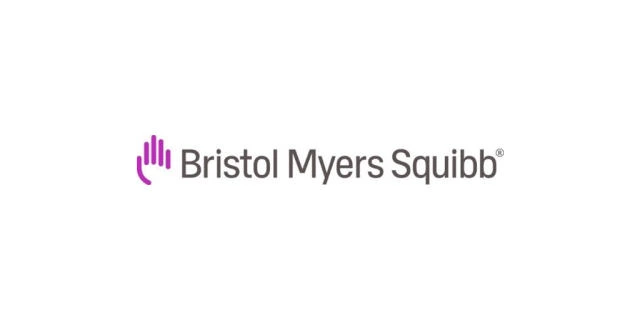
Five-Year Sotyktu (Deucravacitinib) Data Show Consistent Safety and Durable Response in Psoriasis
Bristol Myers Squibb (NYSE:BMY) has announced new five-year data from the POETYK PSO long-term extension (LTE) trial, evaluating Sotyktu (deucravacitinib) in adult patients with moderate-to-severe plaque psoriasis. The results show that the safety profile of Sotyktu remained consistent over the five years, with more than 5,000 patient-years of exposure and no new safety concerns identified. For patients treated continuously with Sotyktu, clinical response rates, including Psoriasis Area and Severity Index (PASI) 75, PASI 90, and static Physician’s Global Assessment (sPGA) 0/1 (clear/almost clear), were maintained from Year 1 to Year 5.
The data, shared at the Winter Clinical Dermatology Conference – Hawaii (WCH) in Waikoloa Village, HI, highlight the sustained safety and efficacy of Sotyktu, showing consistent skin clearance in patients over five years of treatment.
Sotyktu’s safety profile remained stable with no new safety signals emerging during the five-year period, with over 5,000 patient-years of exposure in the trial. The efficacy analysis, involving 513 patients who received continuous treatment with Sotyktu from the pivotal POETYK PSO-1 and POETYK PSO-2 trials and transitioned to the POETYK PSO-LTE trial, demonstrated that clinical response rates were maintained from Year 1 through Year 5.
Specifically, patients treated continuously with Sotyktu achieved sustained outcomes such as Psoriasis Area and Severity Index (PASI) 75 (72.1% at Year 1; 67.3% at Year 5), PASI 90 (45.9% at Year 1; 46.3% at Year 5), and static Physician’s Global Assessment (sPGA) 0/1 (57.5% at Year 1; 52.6% at Year 5). These results underscore the durability of response with long-term Sotyktu treatment.

“These five-year results demonstrate the enduring long-term safety and efficacy of Sotyktu, with patients maintaining skin clearance over time,” said Dr. Mark Lebwohl, dean of Clinical Therapeutics at the Kimberly and Eric J. Waldman Department of Dermatology at the Icahn School of Medicine at Mount Sinai. He continued, “The data further solidify Sotyktu’s role as a potential oral standard of care for moderate-to-severe plaque psoriasis.”
The efficacy analysis utilized the modified nonresponder imputation (mNRI) method to evaluate treatment outcomes. The five-year treatment period followed an initial 52-week phase in the POETYK PSO-1 and POETYK PSO-2 trials. In these pivotal Phase 3 trials, Sotyktu was shown to be more effective than placebo and Otezla (apremilast), with higher proportions of patients achieving PASI 75 and sPGA 0/1. In the POETYK PSO-1 trial, 82% of patients who achieved PASI 75 by Week 24 maintained their response at Week 52. Similarly, in the POETYK PSO-2 trial, 80% of patients who continued treatment with Sotyktu maintained PASI 75 response, compared to only 31% of patients who were withdrawn from Sotyktu.
“These positive five-year results build upon Sotyktu’s established profile as a first-in-class TYK2 inhibitor and reinforce its potential as a transformative oral treatment for psoriasis,” said Dr. Edgar Charles, vice president and senior global program lead, Early & Late Development Immunology at Bristol Myers Squibb. “As leaders in TYK2 innovation, we continue our relentless pursuit of advancing new standards of care for patients with immune-mediated diseases.”
Sotyktu, approved in several countries globally for the treatment of moderate-to-severe plaque psoriasis in adults, has demonstrated its potential to provide durable and effective relief for patients. The POETYK PSO clinical trials, including POETYK PSO-1, POETYK PSO-2, and the ongoing POETYK PSO-LTE trial, have provided robust data supporting its use in the treatment of psoriasis. These trials were designed to evaluate the efficacy and safety of Sotyktu against placebo and Otezla, with the co-primary endpoints being PASI 75 response and sPGA 0/1 score at Week 16. The trials also demonstrated sustained benefits in PASI and sPGA scores, confirming the efficacy of Sotyktu as a long-term treatment option for psoriasis patients.
The POETYK PSO-LTE trial, which has enrolled 1,221 patients who received at least one dose of Sotyktu, continues to evaluate the long-term efficacy and safety of the drug. The trial employs various methods of efficacy analysis, including the treatment failure rules (TFR) method and sensitivity analyses, to ensure robust data interpretation.
Psoriasis is a chronic, systemic immune-mediated disease that significantly affects patients’ physical health, quality of life, and productivity. It impacts approximately 100 million people worldwide, with 14 million in Europe and 7.5 million in the U.S. Around one-quarter of people with psoriasis have moderate-to-severe cases, with plaque psoriasis being the most common type. Despite effective therapies, many patients with moderate-to-severe plaque psoriasis remain undertreated or unsatisfied with existing treatments.
Sotyktu (deucravacitinib) is a novel, oral TYK2 inhibitor that selectively targets specific cytokines involved in immune responses, including interleukin (IL)-23, IL-12, and Type 1 interferons (IFN). By inhibiting TYK2, Sotyktu helps control the inflammatory pathways that drive psoriasis. This selective mechanism offers a targeted approach with a favorable safety profile compared to traditional treatments.
Bristol Myers Squibb remains committed to advancing immunology and dermatology treatments, with a focus on transforming patients’ lives by providing innovative therapies. Their continued efforts to improve care standards for immune-mediated diseases like psoriasis demonstrate the company’s dedication to addressing unmet medical needs and improving patient outcomes worldwide.




